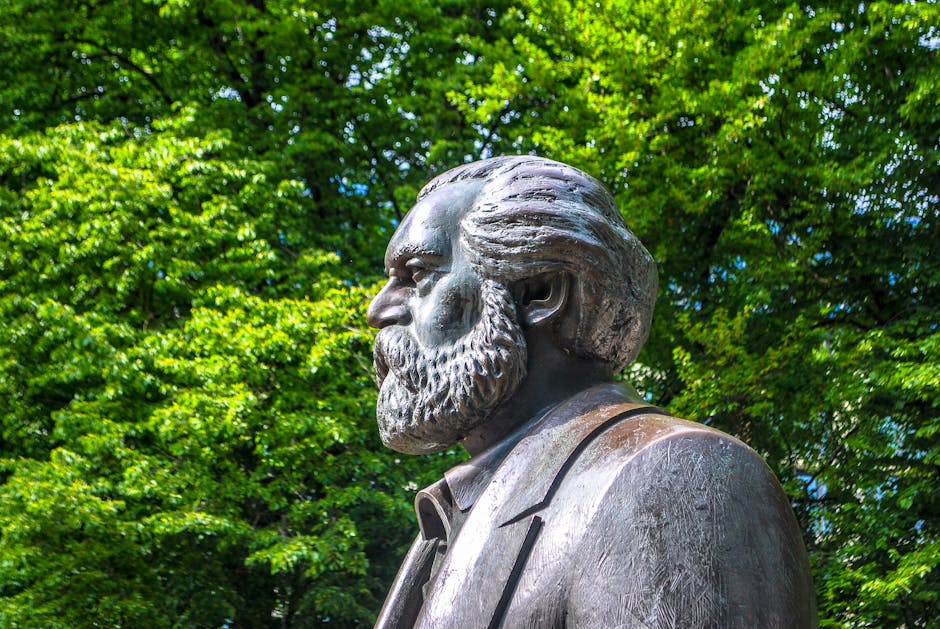Key Takeaways
- Marxism and Liberalism represent competing geopolitical ideologies that have shaped global power dynamics and governance models throughout the 20th and 21st centuries.
- Marxism emphasizes class struggle and state control as means to achieve social equality, often resulting in centralized governance structures.
- Liberalism prioritizes individual freedoms, democratic governance, and market economies within sovereign states, advocating for limited government intervention.
- The geopolitical influence of Marxism has been largely associated with revolutionary movements and state socialism, whereas Liberalism has been tied to democratic institutions and capitalist economies.
- Both ideologies have informed international relations strategies, alliances, and conflicts, reflecting contrasting visions of state sovereignty and global order.
What is Marxism?

Marxism, in a geopolitical context, is an ideology focused on class conflict and the pursuit of a stateless, classless society through revolutionary means. It interprets global politics through the lens of economic structures and power relations between social classes.
State Power and Centralization
Marxism advocates for the concentration of political power in the hands of the proletariat, often operationalized through a single-party state. This centralization is viewed as necessary to dismantle capitalist structures and implement socialist policies effectively across the nation.
Historically, Marxist states have implemented planned economies and centralized decision-making to redistribute resources and control production. Examples include the Soviet Union and Maoist China, where the state played a dominant role in governance and geopolitical strategy.
Such centralization often leads to strong state apparatuses that project power internally and externally, aiming to prevent counter-revolutionary forces from undermining the socialist order. This has implications for both domestic policy and international relations, including aligned communist blocs.
Class Struggle as a Geopolitical Driver
Marxism views global politics as a manifestation of economic class struggles between the bourgeoisie and the proletariat. This framework interprets geopolitical conflicts as battles for control over resources and means of production rather than mere territorial disputes.
The ideology supports revolutionary movements in colonized or oppressed nations to overthrow capitalist or imperialist regimes, aligning them with broader socialist movements. This was evident in Cold War-era proxy conflicts where Marxist insurgencies challenged Western-backed governments.
Such struggles often lead to ideological confrontations on the global stage, with Marxist states supporting liberation movements and socialist revolutions in different regions. This internationalist perspective distinguishes Marxist geopolitics from more nation-centric approaches.
Internationalism and Anti-Imperialism
Marxism promotes solidarity among working classes across national boundaries, advocating for international cooperation against imperialist exploitation. This principle influences foreign policy decisions, fostering alliances with other socialist or anti-colonial states.
Anti-imperialism is central to Marxist geopolitics, opposing capitalist expansion and intervention by Western powers in developing countries. The support for national liberation movements during decolonization periods exemplifies this stance.
This global outlook challenges traditional notions of sovereignty by prioritizing class unity and socialist revolution over national interests. It has shaped geopolitical blocs and movements that contest Western-dominated international systems.
Economic Planning and Territorial Control
Marxist states implement centralized economic planning to manage resources strategically and maintain political control over their territories. This approach aims to eliminate capitalist market fluctuations and ensure equitable distribution.
Geopolitically, such control extends to influencing neighboring states through economic aid or ideological exportation. The use of state-owned enterprises and resource allocation serves both domestic stability and foreign policy objectives.
Control over industrial centers and infrastructure is viewed as critical for maintaining sovereignty and resisting external capitalist pressures. This economic dimension is tightly linked with geopolitical strategy under Marxism.
What is Liberalism?

Liberalism in geopolitical terms centers on the protection of individual rights, democratic governance, and the rule of law within sovereign states. It endorses open markets and multilateral cooperation as foundations for international peace and prosperity.
Democratic Governance and Rule of Law
Liberalism emphasizes the importance of constitutional democracy and legal frameworks to safeguard political freedoms and legitimacy. Governments are accountable to their citizens through regular elections and transparent institutions.
This model promotes checks and balances to prevent abuses of power and protect civil liberties. The diffusion of liberal democracy globally has influenced the formation of international organizations that uphold democratic norms.
Democratic governance under liberalism encourages political pluralism, fostering peaceful transitions of power and negotiation rather than violent conflict. This approach shapes how states interact both internally and externally.
Individual Rights and Sovereignty
Liberalism prioritizes individual autonomy and human rights as core principles guiding state policies and international relations. The protection of freedoms such as speech, religion, and property underpins the legitimacy of liberal states.
This focus often translates into foreign policies that promote human rights and democratic reforms abroad, sometimes resulting in diplomatic pressure or intervention. The emphasis on sovereignty respects the territorial integrity of states but encourages cooperation based on shared values.
Respect for individual rights also fuels civil society and market participation, which liberalism sees as essential for stable, prosperous nations. The empowerment of individuals is both a domestic goal and a diplomatic principle.
Market Economy and Open Trade
Liberalism supports free-market capitalism combined with regulatory frameworks to ensure competitive fairness and economic growth. Open trade policies are considered vital for interdependence and peace among nations.
Global institutions like the World Trade Organization embody liberal principles by facilitating trade agreements and dispute resolution. Economic interdependence is viewed as a deterrent to conflict through mutual benefits.
States following liberalism tend to encourage foreign investment and private enterprise as engines of prosperity. This economic openness influences geopolitical alliances and global power structures favoring market-driven development.
Multilateralism and International Cooperation
Liberalism favors collective security arrangements and international institutions to manage conflicts and promote global stability. Organizations such as the United Nations and NATO reflect liberal commitments to multilateral problem-solving.
This approach seeks to resolve disputes through dialogue, law, and shared norms rather than unilateral actions. Liberal states often lead efforts to establish international agreements on issues like arms control and environmental protection.
Multilateralism under liberalism aims to balance national interests with global responsibilities, fostering cooperation without undermining sovereignty. It represents a framework for peaceful coexistence in an interconnected world.
Comparison Table
The following table outlines essential geopolitical aspects distinguishing Marxism and Liberalism in statecraft, governance, and international relations.
| Parameter of Comparison | Marxism | Liberalism |
|---|---|---|
| Core Political Structure | Single-party state with centralized authority. | Multiparty democratic system with separation of powers. |
| Approach to Sovereignty | Emphasizes international proletarian solidarity over strict national sovereignty. | Focuses on national sovereignty balanced by international law. |
| Economic System | State-controlled economy with planned resource allocation. | Market-based economy with regulatory oversight. |
| Foreign Policy Orientation | Supports revolutionary movements and anti-imperialist alliances. | Promotes diplomatic engagement and trade partnerships. |
| View on Class and Society | Class struggle is central to political and social change. | Emphasizes individual rights over class-based analysis. |
| Military and Security Strategy | Strong state control over military to defend revolution. | Collective security through alliances and international law. |
| International Institutions | Often skeptical or oppositional to Western-led organizations. | Active participation and leadership in global institutions. |
| Human Rights Perspective | Rights subordinated to collective goals and class interests. | Intrinsic |